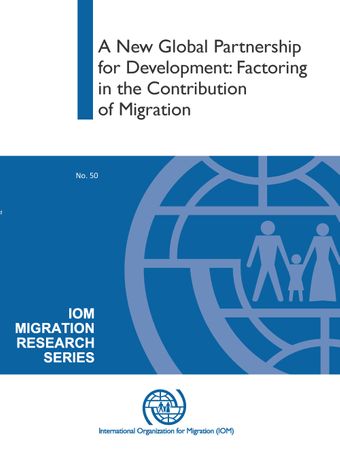Global partnerships

- Authors: Elaine McGregor, Melissa Siegel, Nora Ragab and Teressa Juzwiak
- Main Title: A New Global Partnership for Development , pp 17-39
- Publication Date: August 2014
- DOI: https://doi.org/10.18356/74ba3483-en
- Language: English
Part A of this report has provided an update of the evidence base relating to the relationship between migration and the current MDGs, and considered the various channels through which these impacts are felt. It is evident that de Haas’ (2010) call for more nuanced perspectives is supported by evidence alluding to both positive and negative impacts of migration on development. Nevertheless, it is also clear from the evidence that human mobility and development are intrinsically intertwined and that the potential developmental impacts of migration for sending, receiving and transit countries at various stages of development, and vice versa, are significant. Most other policy fields involving cross-border matters, such as climate change, international trade, finance and communicable diseases, have State-created cooperative mechanisms, primarily through the United Nations System, and are championed for their development impacts. Global migration governance is far more fragmented and yet its impacts are theoretically of equal or greater magnitude. There is, therefore, a clear case for including migration in the post-2015 development agenda.
-
From This Site
/content/books/9789213630365c009dcterms_title,dcterms_subject,pub_keyword-contentType:Journal -contentType:Contributor -contentType:Concept -contentType:Institution105

